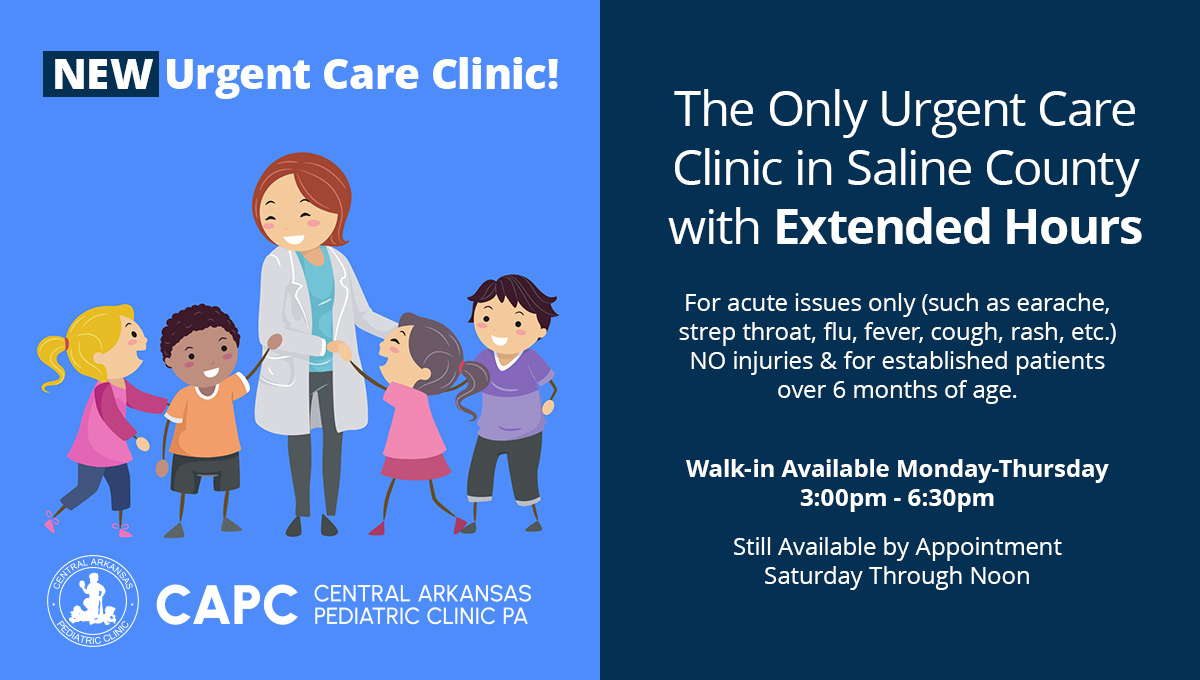
FOR PARENTS
Adolescents
Whew…it’s finally time to relax! – Don’t kid yourself. The fun has just begun. Your pre-teen and teenager will begin taking on more responsibility and learning to become independent, which is great, but can be trying at first. Be patient and try to remember that you were this age once and probably just as obnoxious and annoying as your adolescent may be at times now. (Deep down, they are still your precious sweet baby.)
For your adolescent child, nutrition and staying physically fit continues to be important as well as emotional support for dealing with peer pressure, puberty and sexual development, and safety issues related to high risk behaviors. CAPC is committed to help guide you and your child through this stage of development.
Below are a few frequently asked questions not specifically covered in the Parent Handbook.
Frequently Asked Questions
How frequently should my adolescent have a check-up?
We encourage you to continue bringing your child in for yearly check-ups to insure they stay up-to-date on all immunizations and are developing normally. Adolescents begin entering puberty at a wide range of age. It is comforting for them to hear from their doctor that they are “normal” – even though they may be developing a little sooner or later than their friends. Also, you will have their physical ready for sports and camps when needed and not have to stress about getting an appointment at the last minute. If your child has had a well-child physical exam within the year, we can complete your physical form without your child needing another check-up.
How long can my child continue to be treated by a pediatrician?
Central Arkansas Pediatric Clinic is committed to caring for your child through their 19th birthday. We have chosen this cut-off because it allows us to see them throughout high school and make sure that their immunizations are up-to-date for college enrollment. By this age, health issues are more appropriately addressed by a provider trained in adult medicine.
Should my adolescent daughter receive the vaccine for cervical cancer?
HPV (human papilloma virus) is a common virus that is easily spread by skin-to-skin contact during sexual activity with an infected person and is the main cause of cervical cancer in women. There are approximately 11,000 new cases of cervical cancer in the US each year. The HPV vaccine, Gardasil (the brand used at CAPC), protects girls against four types of HPV including the two types that cause most cervical cancers and the two types that cause most genital warts.
For the HPV vaccine to work best, it is very important to get all 3 doses (shots) before having sexual contact and being exposed to HPV; therefore, it is recommended that the first shot be given at 11 – 12 years of age. Even if your daughter is abstinent until marriage, there is no guarantee that her future husband will have been too and may, unknowingly, have this virus and pass it along to your daughter.
Which vaccines are recommended for adolescents?
With new and improved vaccines, the recommendations are constantly changing. Please review the current list of recommended vaccines for 7 – 18 year olds on the American Academy of Pediatrics website here.
Browse our Online Parent Handbook!
Our one-stop guide for parents is now online! Click the button to access helpful information about the most common pediatric symptoms and concerns.
